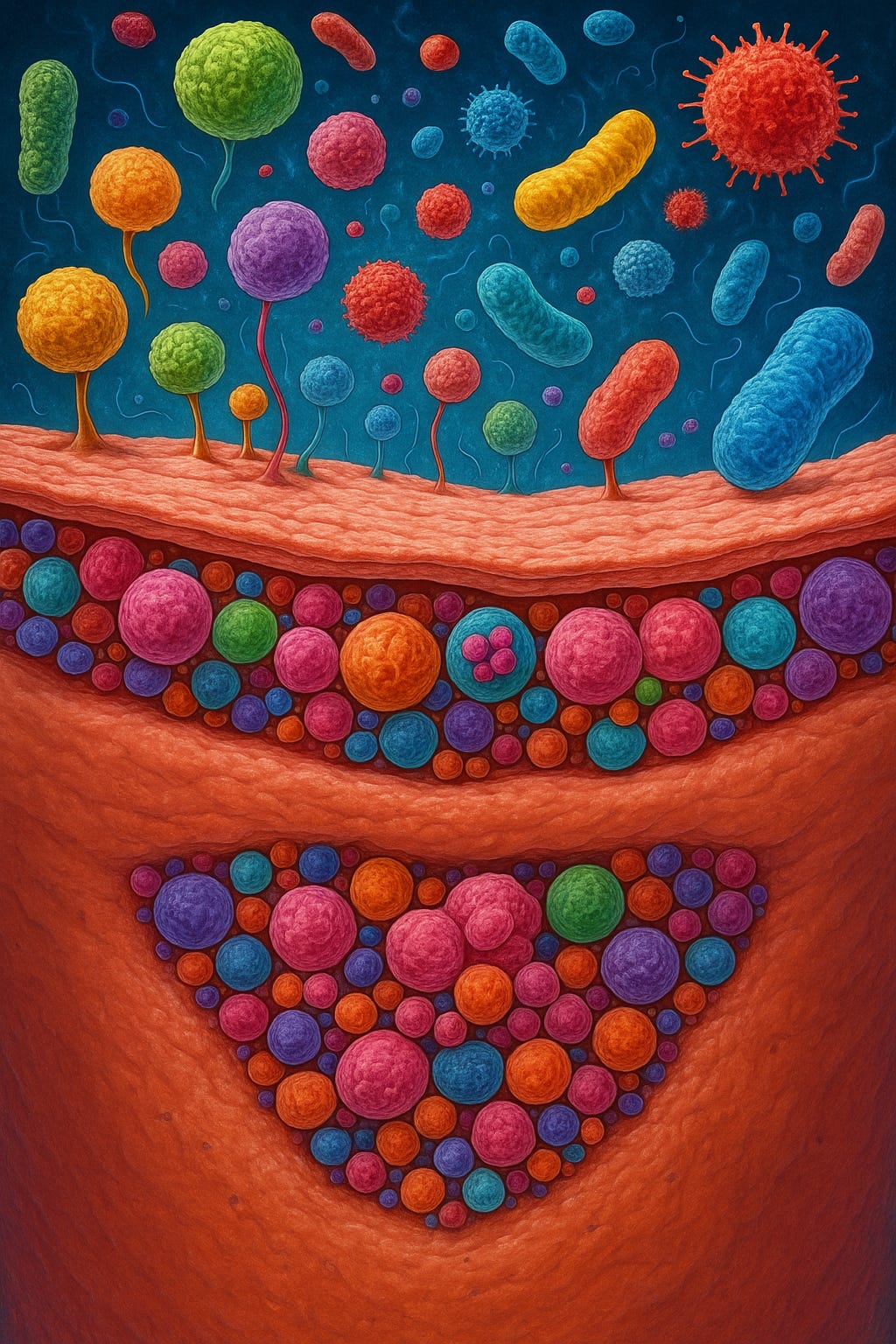Skin Microbiome Shifts Signal Squamous Cell Carcinoma Risk
Emerging evidence shows fungal and viral skin microbes may help identify high-risk patients before cancer develops
Researchers have discovered distinct skin microbiome changes including increased levels of certain fungi and viruses in individuals at high risk for cutaneous squamous cell carcinoma (SCC). These findings suggest that microbiome analysis could one day help detect cancer risk earlier, particularly in older adults and immunosuppressed patients.
Study Detai…
Keep reading with a 7-day free trial
Subscribe to Just Healthcare to keep reading this post and get 7 days of free access to the full post archives.


